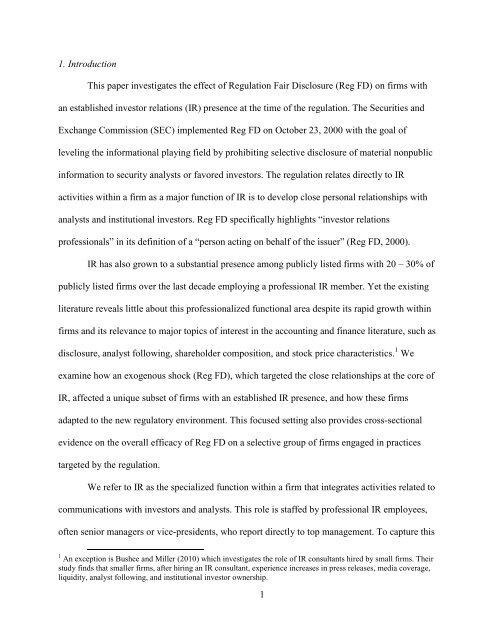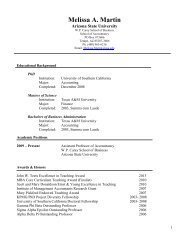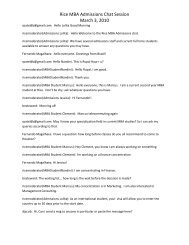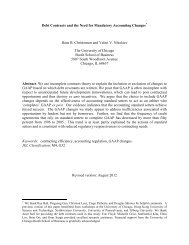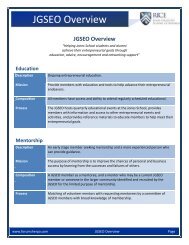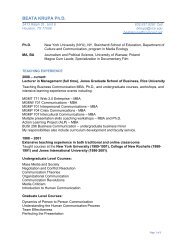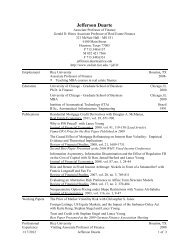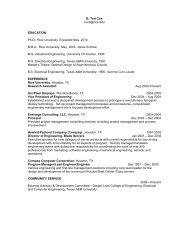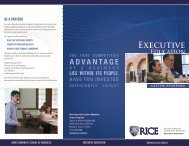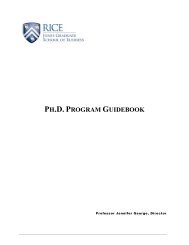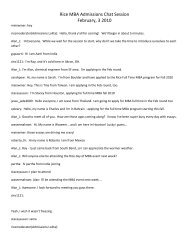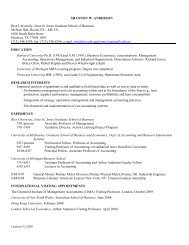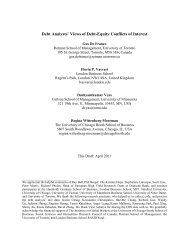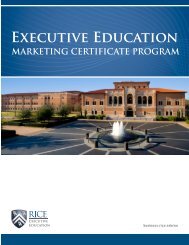Investor Relations and Regulation FD
Investor Relations and Regulation FD
Investor Relations and Regulation FD
You also want an ePaper? Increase the reach of your titles
YUMPU automatically turns print PDFs into web optimized ePapers that Google loves.
1. Introduction<br />
This paper investigates the effect of <strong>Regulation</strong> Fair Disclosure (Reg <strong>FD</strong>) on firms with<br />
an established investor relations (IR) presence at the time of the regulation. The Securities <strong>and</strong><br />
Exchange Commission (SEC) implemented Reg <strong>FD</strong> on October 23, 2000 with the goal of<br />
leveling the informational playing field by prohibiting selective disclosure of material nonpublic<br />
information to security analysts or favored investors. The regulation relates directly to IR<br />
activities within a firm as a major function of IR is to develop close personal relationships with<br />
analysts <strong>and</strong> institutional investors. Reg <strong>FD</strong> specifically highlights “investor relations<br />
professionals” in its definition of a “person acting on behalf of the issuer” (Reg <strong>FD</strong>, 2000).<br />
IR has also grown to a substantial presence among publicly listed firms with 20 – 30% of<br />
publicly listed firms over the last decade employing a professional IR member. Yet the existing<br />
literature reveals little about this professionalized functional area despite its rapid growth within<br />
firms <strong>and</strong> its relevance to major topics of interest in the accounting <strong>and</strong> finance literature, such as<br />
disclosure, analyst following, shareholder composition, <strong>and</strong> stock price characteristics. 1 We<br />
examine how an exogenous shock (Reg <strong>FD</strong>), which targeted the close relationships at the core of<br />
IR, affected a unique subset of firms with an established IR presence, <strong>and</strong> how these firms<br />
adapted to the new regulatory environment. This focused setting also provides cross-sectional<br />
evidence on the overall efficacy of Reg <strong>FD</strong> on a selective group of firms engaged in practices<br />
targeted by the regulation.<br />
We refer to IR as the specialized function within a firm that integrates activities related to<br />
communications with investors <strong>and</strong> analysts. This role is staffed by professional IR employees,<br />
often senior managers or vice-presidents, who report directly to top management. To capture this<br />
1 An exception is Bushee <strong>and</strong> Miller (2010) which investigates the role of IR consultants hired by small firms. Their<br />
study finds that smaller firms, after hiring an IR consultant, experience increases in press releases, media coverage,<br />
liquidity, analyst following, <strong>and</strong> institutional investor ownership.<br />
1


